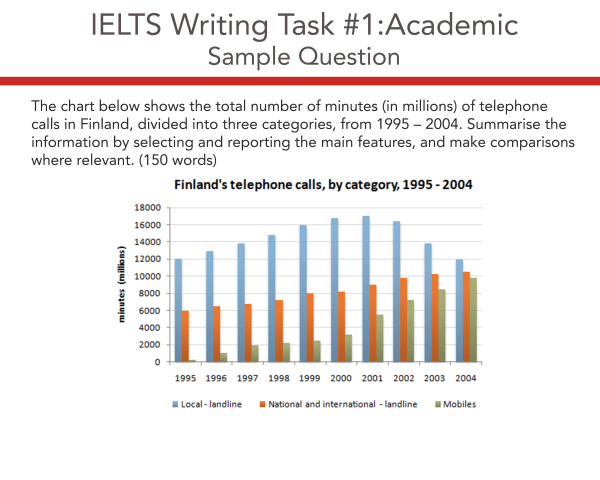Is it even possible to score a Band 9 in IELTS?
Well, it is certainly possible. In fact, not only have I scored a band 9 in IELTS myself, I have also helped several of my students score band 9 in writing and speaking too. If you want to learn the art and science behind scoring an IELTS writing Band 9 (or if you just want to improve your score by a few bands), read on.
Every day we receive 100's of IELTS writing and speaking tasks for correction from our students. Our experienced IELTS tutors go over every single word of the essay, and speaking task recordings, and mark them based on the criteria specified in the IELTS Band Score Descriptors.
A lot of academic and general IELTS students struggle with the writing and speaking sections. So we thought we would list out the IELTS Band 7, 8 and 9 model answers for writing and speaking that we have seen from our IELTS Twenty20 Course students so far. An important thing to note is that these students went through several feedback rounds with other writing and speaking topics where they perfected the art of a good IELTS response for writing and speaking. So don't get intimidated if you think you cannot write such essays or structure your speaking response in the same way. Everyone struggles with it and it takes time to improve.
But before we look at the IELTS Band 9 model answers, let's understand how to write the perfect IELTS Band 9 essay.
How to write an IELTS Band 9 essay?
In IELTS Writing Task 2, you are given brief details of an opinion, an argument or a problem, and have to produce an extended piece of discursive writing (an essay) in response.
You need to write at least 250 words and should spend about 40 minutes on this task.
Let's look at a step by step process on how to write a great writing task 2 essay every time ... no matter what the topic.
What are the different types of IELTS essays?
Understand the IELTS writing task 2 marking criteria
When IELTS examiners mark your essays they refer to the IELTS writing band descriptors. Here's what the band descriptors mean in plain English.
Identify the main topic of the essay
- If you incorrectly identify the main idea then you CANNOT score above Band 4.
- If you present a main idea that is not sufficiently developed and supported by examples then you CANNOT score above Band 6.
Identify all parts of the task
- If you address only some parts of the task and not others then you CANNOT score above Band 5.
- Even if you identify all parts of the task correctly but fail to cover each of them fully you WILL NOT be able to score above Band 6.
Present a position/opinion
- If you do not express a clear position then you CANNOT score above Band 5.
Conclusion
- If you do not write a conclusion at the end you CANNOT score above Band 5.
- If your conclusion is unclear or repetitive then you CANNOT score above Band 6.
In other words, if you want to score Band 7+, you need to consistently, accurately and appropriately demonstrate the use of all 4 points highlighted above.
Did you think that was all ... nope there's more ...
Even if you do all of the above there is still a chance that you may not be able to score above Band 7. In order to really ensure Band 7+ you need to master the 4 C’s of Essay Writing.
The 4 C's of Essay Writing
Cohesion - refers to words and phrases that help link ideas together.For example:
- Because of this ....
- It is clear that ...
- It can be seen ... etc.
Conciseness - Long sentences do not mean more marks. Run-on sentences will often cause you to lose marks in this area. There are three sentence structures you should be using:
- Simple sentence - Contains a subject and a verb and expresses a complete thought. For Example - The teacher returned the homework.
- Complex sentences - Has an independent clause (simple sentence) joined by one or more dependent clauses (cannot stand alone as a sentence) For Example - The teacher returned the homework after she noticed the error.
- Compound sentences - Two simple sentences joined by a coordinator (ex. for, and, or, yet, so). For Example - The teacher returned the homework so everyone got to go home early.
Coherence - How easy is your essay to understand? In order to improve your coherence, proper grammar is a must. You are not there while the essay is being marked, so your ideas need to be clear and easy to understand. Using the cohesive phrases mentioned earlier, can improve the coherence of your essay.
Composition - The structure of your essay (introduction paragraph, 2-3 body paragraphs, and a conclusion paragraph). A good introduction includes a little background on the topic, a thesis statement, and a preview of the 2-3 main points of your essay. Each body paragraph should include a topic sentence illustrating your point, an example of your point and how it ties into your topic sentence, as well as a concluding sentence that ties this point into your thesis.
Conclusions should reiterate your two or three main ideas from your body paragraphs an restate your thesis again using different words than before. To end your conclusion, you should give a prediction or recommendation on the essay topic.
Note: Remember a proper paragraph has at least 3-4 sentences. Each paragraph should revolve around a main idea, and when you start a new idea, you should start a new paragraph.
How to identify the main topic and all parts of the IELTS essay?
This tutorial will teach you the key steps to identify the main topic and all parts of the IELTS Writing Task 2 question.
Follow the 3 steps mentioned in the video and you will never go wrong.
How to brainstorm and organise your ideas for IELTS writing task 2?
Once you have identified the topic and question parts for your writing task, the next step is to brainstorm ideas that should become part of your essay. In order to get a good band score it is not enough to just create a list of ideas - you need to extend and explain each of those ideas in detail. Lets look at our example from before:
This tutorial will teach you how to brainstorm and extend your ideas for IELTS Writing Task 2 question.
Tips for writing an IELTS band 9 essay
Here's a check list for Writing Task 2. Follow this check list and you are guaranteed to score Band 7+ in IELTS Writing.
- First off, read & understand the topic of the essay for Writing Task 2.
- Identify all the key parts of the question.
- Brainstorm and organise your ideas to ensure that each of your ideas is fully explained and well supported with examples.
- If the question asks for your opinion, make sure you state it clearly and you don’t contradict that view throughout the rest of the essay.
- Learn the structure of an essay: Introduction , body paragraphs, conclusion
- Do not copy the question word for word for your introduction or else those words will be deducted from your total word count. Instead always paraphrase the question in your own words.
- You MUST write a conclusion/overview at the end. Don’t add new information in your conclusion. Instead, rephrase your key points, and give a strong ending sentence that ties everything together.
- Always write in a formal tone and use it consistently throughout the essay.
- Do not use bullet points or short notes.
- Use a wide range of grammatical structures and vocabulary.
- Remember to follow the 4 C's of essay writing.
- Practice and learn synonyms so your writing has a range of vocabulary and does not become repetitive.
- Write at least 250 words. Anything less, you will lose marks.Ideally the essay should be about 250-280 words.
- Write neatly, as the person who is marking your essay should be able to easily read and understand what you have written.
- Do Task 2 first, as it is worth twice as much as Task 1, so priority should be placed here.
-
Practice makes perfect. Write as many practice essays as you can, and have them marked by an English teacher for mistakes.
- Practice timing yourself at home, and stick to the allotted time for each section. During the real test, bring a watch and manage your time carefully.
- Check your writing. If you finish with extra time, look over your essay for any spelling, grammar, or other mistakes you might find.
Frequently asked questions about IELTS Writing Task 2
Q: Will I lose marks if I write too many words (400-500) in my essay?
A: There is no penalty for writing more than 250 words for writing task 2. However, there are also no extra marks for writing more. In fact, the more you write, the more you may end up making spelling or grammar mistakes. It is much better to write around 280 words within 35 minutes and spend the last 5 minutes reviewing your work for mistakes.
Q: Will I lose marks if my handwriting is very poor?
A: In IELTS, handwriting does not affect your scores directly. The scoring rubric does not have any points for handwriting. However, it affects your score indirectly. i.e if your handwriting is illegible, the examiner will think that you have misspelled a word and will mark you lower on lexical resources. The examiner will not give you the benefit of doubt if she is not sure about the words you have written.
Moreover, handwriting also affects the overall impression on the examiner. Remember that IELTS examiners are humans and like all humans they form their first impressions looking at your handwriting. The clearer your work, the better first impression you will make on the examiner.
Popular Topics for Writing Task 2
Topics for IELTS writing task 2 are usually related to some issue or problem that is currently affecting society and you need to discuss it. In recent IELTS exams, topics have mostly dealt with:
- Environment
- Education
- Crime
- Animal rights
- Health
- The Internet
- Tourism
- Jobs
For more IELTS tutorials and feedback for speaking and writing tasks, sign up for IELTS Twenty20 Online Course today!
Use Promo Code AUSSIE to get 10% discount at checkout.
Study 20 minutes a day for 20 days and Ace the IELTS exam.





